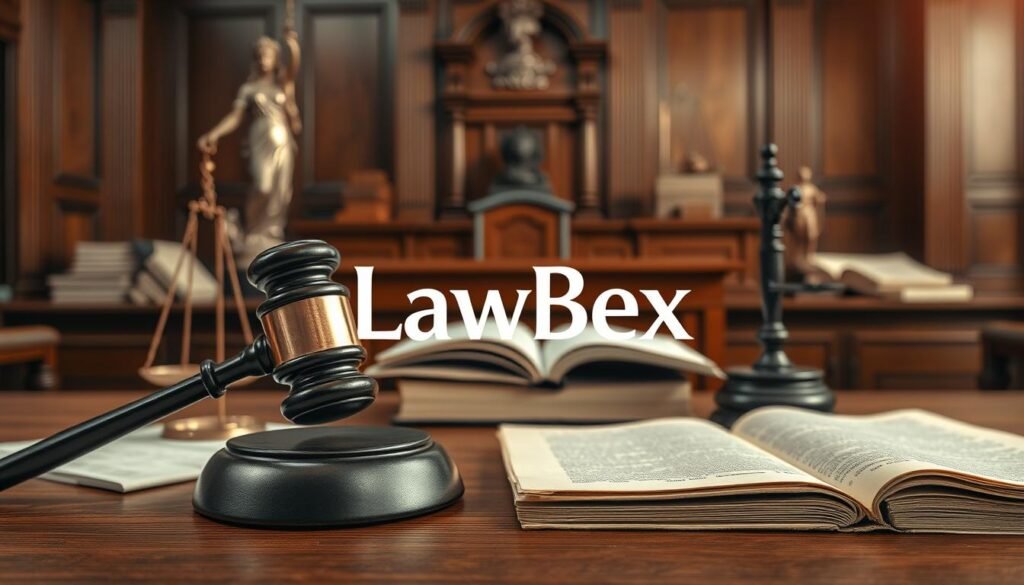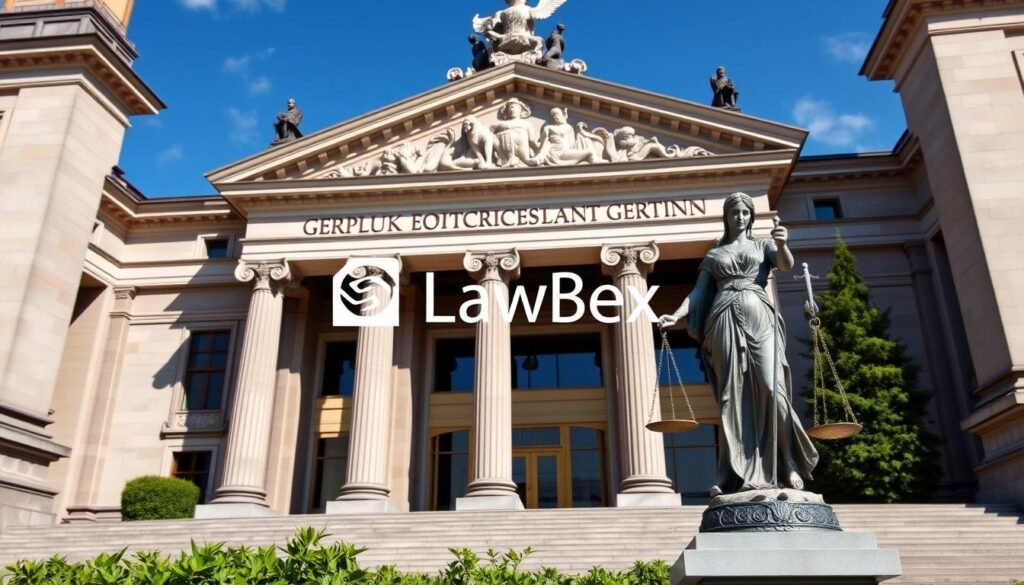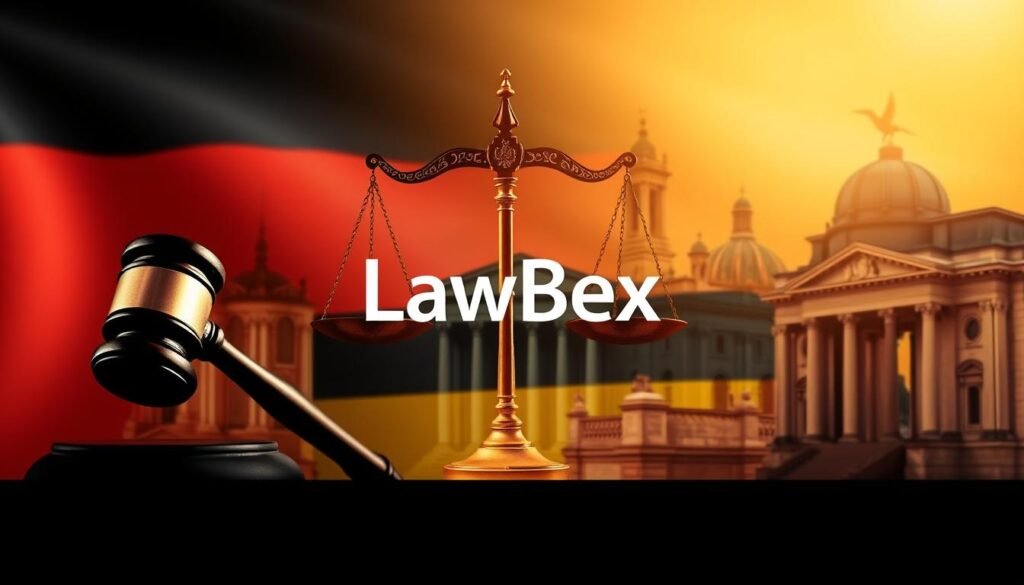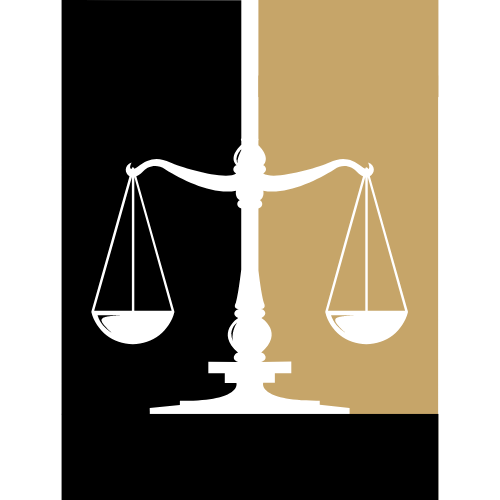Did you know Germany has over 130,000 laws? These laws affect almost every part of life, from personal rights to business rules. Understanding the important laws in Germany is vital for following the rules, protecting yourself, and navigating the legal system effectively.
Key Takeaways
- Germany has a robust legal system with a vast array of important laws that impact daily life.
- The German Basic Law, or constitution, establishes fundamental rights and the structure of government.
- Critical codes, such as the Civil Code and Criminal Code, regulate private matters and maintain order.
- Data protection, labor, environmental, and anti-discrimination laws shape the country’s policies and standards.
- Awareness of consumer protection, intellectual property, tax, and family laws is essential for residents and visitors.
Introduction
Germany has a well-developed legal system that affects everyone living there. It’s important to know the laws that govern personal and business life. This article will give you an overview of Germany’s key laws and regulations.
The Basic Law is Germany’s Constitution. It sets out the rights and freedoms of citizens. It also explains how the government works, including the roles of the legislative, executive, and judicial branches. The German Civil Code and Criminal Code are also key, covering personal and criminal matters.
Germany has many laws to cover modern life. These include laws on data protection, labor rights, and environmental protection. There are also laws against discrimination and for fair trade. These laws help keep consumers safe and ensure fair practices.
Understanding Germany’s legal system is important. This includes the judicial process, international laws, and laws on intellectual property, taxes, and inheritance. By exploring these areas, we can see how laws impact daily life in Germany.
As we dive deeper into the Germany laws overview, we’ll look at the main laws and regulations. Knowing these laws helps us understand life in Germany better. It’s essential for navigating the country’s legal landscape.
The German Basic Law: Cornerstone of Legislation
The German Basic Law, or Grundgesetz, is the country’s constitution. It sets out the fundamental rights and freedoms of German citizens. It also explains how the government is structured, including the roles of the executive, legislative, and judicial branches.
Fundamental Rights and Liberties
The German Basic Law protects key civil liberties. These include freedom of expression, freedom of religion, and the right to privacy. These rights are guaranteed in the constitution, making sure the government respects them.
Structure of Government
The Basic Law also divides power between the federal and state governments. This system of checks and balances prevents any one group from having too much power. It helps keep the political system stable and democratic.
| Branch of Government | Key Responsibilities |
|---|---|
| Executive | Headed by the Chancellor, responsible for implementing laws and policies |
| Legislative | Comprised of the Bundestag (lower house) and Bundesrat (upper house), responsible for passing laws |
| Judicial | Includes the Federal Constitutional Court, responsible for interpreting the Basic Law and ensuring its enforcement |
The German Basic Law is the foundation of the country’s laws. It protects citizens’ rights and ensures a fair and effective government.

Civil Code: Regulating Private Matters
The German Civil Code, or Bürgerliches Gesetzbuch (BGB), is a key set of laws. It deals with private legal matters in Germany. Topics include property rights, contracts, family law, and inheritance. It sets out the rights and duties of people and businesses, making sure there’s a clear legal path for private dealings.
The BGB is split into five books, each focusing on a different area of private law:
- General Part: Covers the basic principles and general rules of private law.
- Law of Obligations: Deals with contracts like sales, leases, and services.
- Property Law: Handles ownership, transfer, and protection of property.
- Family Law: Looks at marriage, divorce, parental rights, and inheritance.
- Law of Succession: Sets out the rules for inheritance and estate planning.
The Civil Code is a key part of Germany’s private law. It provides a clear legal framework for private matters. This helps keep society stable and makes transactions and interactions smoother between people and businesses.
| Key Aspects of the German Civil Code | Description |
|---|---|
| Contractual Agreements | The BGB outlines the rules for valid contracts, including how they’re made, performed, and ended. |
| Property Rights | The code deals with owning, using, and transferring property, including easements and other rights. |
| Family Relationships | The BGB addresses marriage, divorce, parental duties, and inheritance, protecting family rights and duties. |
| Liability and Damages | The code sets the rules for tort law, including when someone is liable and how damages are paid. |
The German Civil Code is a vital piece of legislation. It shapes the private law in Germany by offering a unified legal framework. This promotes stability, fairness, and predictability in private legal dealings in the country.
Criminal Code: Maintaining Order and Justice
The German Criminal Code, known as the Strafgesetzbuch (StGB), is the heart of criminal law in Germany. It lists many crimes, from big felonies to smaller misdemeanors, and says how long someone might be punished. This code helps the German government keep the country safe and fair.
Felonies and Misdemeanors
The StGB divides crimes into felonies and misdemeanors. Felonies, like murder and robbery, get very harsh punishments. Misdemeanors, like theft and vandalism, have lighter sentences or fines.
Sentencing Guidelines
The StGB has rules for sentencing to make sure justice is fair. Judges look at the crime’s severity, the person’s past crimes, and other factors. This way, punishments fit each case.
| Offense | Sentencing Range |
|---|---|
| Murder | Life imprisonment |
| Aggravated Assault | 6 months to 10 years imprisonment |
| Theft | Up to 5 years imprisonment or a fine |
The German Criminal Code is key to keeping the country safe and just. It clearly lists crimes and their punishments. This helps the legal system stay fair and accountable.

Important laws in Germany: Data Protection and Privacy
In today’s world, keeping data safe and private is crucial. Germany has made big steps to protect its people’s personal info. The General Data Protection Regulation (GDPR) is a key part of this effort. It changes how companies handle and protect data.
GDPR Compliance
The GDPR was introduced in the European Union in 2018. It sets strict rules for handling personal data. Companies in Germany must follow these rules to protect their customers’ and employees’ privacy. Not following the rules can lead to big fines and harm to their reputation.
To meet GDPR standards, companies must:
- Get clear consent from people before using their personal data
- Use strong security to keep data safe from unauthorized access
- Be open about how they use personal data and let people see, change, or delete it
- Have a Data Protection Officer to watch over data practices
These laws in Germany aim to protect people’s rights and freedoms online. Following GDPR helps companies earn trust from their customers. It shows they care about handling data responsibly.
“Data protection is not just a compliance issue, but a fundamental right that must be respected and upheld.”
| Regulation | Key Requirements | Penalties for Non-Compliance |
|---|---|---|
| GDPR (General Data Protection Regulation) |
|
|
Labor Regulations: Protecting Employee Rights
In Germany, there are strict labor laws to protect workers. These laws cover many areas, like working hours, minimum wage, and safety. Employers must follow these laws to treat workers fairly and keep the workplace friendly.
The German Basic Law sets out basic rights for workers. It includes the right to choose your job, equal pay for equal work, and no forced labor. These rights are also found in the German Civil Code and other labor laws.
One important rule is the minimum wage. Workers must get at least €12.00 an hour. They also get paid time off, sick leave, and leave for new parents, all by law.
Keeping the workplace safe is also a big deal. Employers must keep the work area safe and healthy. They must follow strict safety rules and give the right gear. There are also laws against unfair treatment, like because of gender or age.
| Key Labor Regulations in Germany | Description |
|---|---|
| Minimum Wage | €12.00 per hour |
| Paid Vacation Time | Minimum of 20 working days per year |
| Sick Leave | Paid leave for illness, with employer covering the cost |
| Maternity/Paternity Leave | Up to 14 weeks for mothers, 2 weeks for fathers |
| Workplace Safety Standards | Comprehensive regulations to ensure a safe work environment |
| Anti-Discrimination Measures | Prohibitions against unfair treatment based on various factors |
By following these labor laws in Germany, employers show they care about employee rights. These rules help create a good work environment. They are key to a fair and happy workforce, which is good for everyone in Germany.

Environmental Legislation: Promoting Sustainability
Germany is a leader in protecting the environment. It shows this through strong environmental laws. These laws focus on using renewable energy and managing waste well.
Renewable Energy Laws
Germany wants to cut down on carbon emissions and use less fossil fuel. It has laws to help grow renewable energy. The Renewable Energy Sources Act (EEG) is key. It makes sure more electricity comes from clean sources like wind, solar, and water.
This law has made Germany a top player in renewable energy. Now, a big part of its electricity is from green sources.
Waste Management Regulations
Germany also has strict waste management regulations. The Circular Economy Act and the Packaging Act are important. They push for recycling, reuse, and proper waste disposal.
These laws have greatly reduced landfill waste. They help manage resources better and more sustainably.
Germany’s laws show its strong commitment to the environment. By supporting renewable energy and managing waste well, it leads the way in solving big environmental problems.
“Germany’s environmental legislation serves as a model for other nations, showcasing the power of policy to drive positive change and secure a more sustainable future.”
Anti-Discrimination Laws: Ensuring Equality
Germany stands strong against discrimination, with laws that protect everyone from unfair treatment. These laws cover race, gender, religion, age, disability, and sexual orientation. They apply in jobs, housing, and public services. The goal is to ensure equal chances for everyone and build a more welcoming society.
The heart of Germany’s fight against discrimination is the General Equal Treatment Act. It spells out protections and actions against discrimination. This law is backed by human rights in the German Basic Law and the European Union’s rights.
Germany’s laws cover many areas, ensuring fair treatment for all. They ban workplace discrimination and ensure equal access to housing and services. These rules aim to make society based on equality.
“Discrimination has no place in a just and prosperous society. Germany’s anti-discrimination laws are a testament to our commitment to upholding human dignity and providing equal opportunities for all.”
Germany keeps working towards a fairer future by enforcing these laws and promoting inclusion. This shows that anti-discrimination is not just a law, but a core value in society.
Promoting Equality Through Comprehensive Legislation
Germany’s anti-discrimination laws touch many areas, including:
- Employment: Prohibiting discrimination in hiring, promotion, and workplace conditions
- Housing: Ensuring equal access to rental properties and homeownership
- Public Services: Guaranteeing fair treatment when accessing education, healthcare, and other public amenities
- Goods and Services: Preventing discrimination in the provision of goods and services to the public
By tackling these key areas, the German government shows its dedication to a society where equality is real, not just an idea.
Consumer Protection Laws: Safeguarding Consumers
Germany is proud of its strong consumer protection laws. These laws protect the rights of people who buy goods and services. They make sure products are safe, trade is fair, and there’s a way for consumers to get help if needed.
The goal is to have a market that is open, safe, and listens to what consumers want.
Product Safety Standards
Germany’s consumer protection laws focus a lot on product safety. Companies must follow strict rules to make sure their products are good and safe. They do tests and checks to find and fix any problems.
So, when you buy something, you can be sure it’s reliable and safe.
Fair Trade Practices
Germany also cares about fair trade. Businesses must be clear about prices and rules. This stops them from being dishonest. If you feel treated unfairly, you can get help.
This makes the market a place where people can trust each other.
Germany keeps working to protect consumers. This is shown by the way it keeps improving its consumer. Companies in Germany must keep up with new rules. This helps them avoid fines and keeps their customers’ trust.
“Protecting the rights and wellbeing of consumers is a top priority for the German government. Our consumer protection laws are designed to create a fair, transparent, and secure marketplace.”
Legal System: Courts and Judicial Process
Germany’s legal system is based on civil law. It has a clear court structure and follows codified laws. The country has different courts, like local and regional courts, and the Federal Court of Justice at the top.
The German legal system values fairness and impartiality. It makes sure legal issues are solved in a clear and open way. The judicial process in Germany has set steps and protections for everyone’s rights.
The German courts believe in independent and fair judges. Judges must follow the law and make decisions based on evidence and laws. This is key to the German legal system’s integrity.
| Court Type | Jurisdiction |
|---|---|
| Local District Courts | Handle a wide range of civil and criminal cases, including smaller disputes and misdemeanors. |
| Regional Courts | Serve as the primary trial courts for more serious criminal offenses and complex civil cases. |
| Federal Court of Justice | The highest court of appeal, responsible for ensuring the uniform application of the law across the country. |
The German legal system and its courts are crucial for a fair society. The judicial process in Germany protects individual rights and benefits the nation as a whole.

International Laws and Treaties
Germany is part of the European Union, which means it follows many international laws and treaties. These include directives and regulations from the European Parliament and the Council of the European Union. Germany must make these rules part of its own laws. This affects how Germany makes policies and works with other countries.
European Union Directives
The European Union has directives that all countries, including Germany, must follow. These cover many areas like consumer protection, environmental rules, data privacy, and labor laws. German lawmakers have to make sure their laws match these EU guidelines. This often means changing international laws in Germany.
- The General Data Protection Regulation (GDPR) is a key EU directive. It has made a big difference in international laws in Germany, requiring strict data privacy rules for businesses.
- The Renewable Energy Directive has pushed Germany to use more EU directives renewable energy sources.
- The EU’s Anti-Discrimination Directive has helped Germany fight for equality and stop discrimination in different areas.
By following these EU directives, Germany stays in line with the European Union’s laws. It also updates its policies to meet new international needs and goals.
Intellectual Property Laws
In Germany, intellectual property laws are key to innovation and protecting creators’ rights. They cover patents, trademarks, and copyrights. These laws help keep ideas, designs, and creative works safe, ensuring success for years to come.
Patents give inventors exclusive rights for a set time, rewarding their hard work. Trademarks protect brand identities, helping consumers know what they’re buying. Copyrights safeguard the work of authors and artists, letting them control their creations.
Following these laws is not just a must; it’s smart for businesses and individuals in Germany. Knowing the latest in intellectual property helps them grow and succeed in a competitive market.
- Patents: Exclusive rights for inventors to protect their innovations
- Trademarks: Safeguarding unique brand identities and consumer recognition
- Copyrights: Ensuring the rights of authors, artists, and other creative professionals
“Intellectual property protection is essential for fostering a thriving and innovative economy in Germany.”

By following Germany’s strong intellectual property laws, people and businesses can find new ways to grow. They can keep their edge and help make Germany’s economy vibrant and dynamic.
Tax Laws: Understanding Obligations
In Germany, we face a complex tax system at national, state, and local levels. It’s vital to follow tax laws in Germany to avoid penalties. Knowing about income tax, value-added tax (VAT), and corporate tax is key for both residents and businesses.
Here’s a quick guide to help you understand German tax laws:
- Income Tax: In Germany, income tax is based on a progressive scale. This means those who earn more pay more.
- Value-Added Tax (VAT): Businesses must collect and pay VAT on sales of goods and services.
- Corporate Tax: Companies pay corporate tax on their profits. Rates depend on size and industry.
- Social Security Contributions: Both workers and employers must contribute to social security. This covers retirement, healthcare, and unemployment benefits.
| Tax Type | Key Characteristics | Applicable Rates |
|---|---|---|
| Income Tax | Calculated based on a linear progressive scale | 14% to 45% of taxable income |
| Value-Added Tax (VAT) | Consumption tax applied to the sale of goods and services | 19% standard rate, 7% reduced rate for certain items |
| Corporate Tax | Paid by companies on their profits | 15% plus a 5.5% solidarity surcharge |
| Social Security Contributions | Mandatory payments by employees and employers | Varying rates depending on the specific social security program |
By grasping German tax laws and our duties, we can stay compliant. This helps us avoid penalties and supports the country’s services and infrastructure. It’s a critical part of life and work in Germany.
“Paying taxes is a civic duty, and understanding the system is crucial for individuals and businesses to fulfill their obligations.”
Family and Inheritance Laws
Germany has strong laws for family and inheritance. These rules help manage personal and family matters fairly. They protect individual rights and make sure property is passed on smoothly after someone dies.
These laws cover marriage, divorce, child custody, and asset distribution after death. The inheritance laws in Germany say the deceased’s estate goes to their heirs completely. This includes rules for giving up inheritance, figuring out shares, and taxing inherited assets.
Germany’s family laws focus on keeping family rights and children’s well-being safe. Divorce must think about the best for any kids, with rules for support and custody. The German Civil Code also guides making wills, following both German and EU rules.
“The German legal framework on family and inheritance matters aims to provide a fair and consistent approach to managing personal affairs, protecting individual rights, and facilitating the orderly transfer of property.”
Knowing these laws helps people and families in Germany deal with personal and family issues better. It ensures their rights are protected and their wishes are respected.
COMPLIANCE IN LABOR LAW / LABOR LAW AND COMPLIANCE
Conclusion
Germany has a detailed legal system that covers many areas. It includes laws for social, economic, and environmental issues. These laws protect everyone’s rights and duties.
The German Basic Law is at the heart of it all. It’s joined by civil, criminal, and labor codes. These laws help keep society fair and safe.
Germany also has laws like GDPR for data protection and laws against discrimination. These laws help keep the country running smoothly. They protect citizens and help the country grow.
Knowing these laws helps us understand Germany’s legal system better. It makes sure we follow the rules and regulations. This is important for our personal and business lives.
As we interact more with Germany, staying updated on laws is key. Learning about these laws helps us navigate the system confidently. It also helps us contribute to our communities and businesses.
